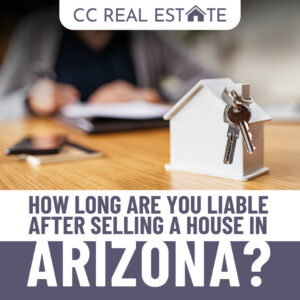Closing is the final stage of a real estate transaction. Paying closing costs is important to finalize the real estate transaction and transfer the ownership of the house from the seller to the buyer. In Arizona, both the buyer and the seller pay for closing costs.
Seller closing costs in Arizona can amount to 8% to 10% of the final sale price of the home, while the buyer can expect to pay between 2% to 5% of the final sale price of the home or the mortgage amount in closing costs.
In this article, we will answer these questions:
What are closing costs in Arizona?
How much are closing costs in Arizona?
Who pays closing costs in Arizona?

Credit: Image by Tierra Mallorca | Unsplash
Typical Range for Closing Costs
The tables below answer the question, “How much are closing costs in AZ for buyer and seller?”
The numbers reflect an estimated range of closing costs for buyers and sellers in Arizona based on the median home sale price of $416,600 (as of March 2023). We have broadened the ranges for properties selling at higher or lower rates than the median price.
Buyer
| Home Purchase Price | Buyer’s Closing Cost (2% to 5%) | Total Upfront Cost (With 20% Down Payment) |
|---|---|---|
| $208,300 | $4,895.05 to $10,415 | $46,555.05 to $52,075 |
| $312,450 | $7,342.58 to $15,622 | $69,832.58 to $78,112 |
| $416,600 | $9,790.10 to $20,830 | $93,110.10 to $104,150 |
| $624,900 | $14,685.15 to $31,245 | $139,665.15 to $156,225 |
| $833,200 | $19,580.20 to $41,660 | $186,220.20 to $208,300 |
Seller
| Home Purchase Price | Seller’s Closing Cost (8% to 10%) |
|---|---|
| $208,300 | $16,664 to $20,830 |
| $312,450 | $24,996 to $31,245 |
| $416,600 | $33,328 to $41,660 |
| $624,900 | $49,992 to $62,490 |
| $833,200 | $66,656 to $83,320 |

Credit: Image by Towfiqu barbhuiya | Unsplash
Arizona Closing Costs Breakdown
In Arizona, the buyers are responsible for paying most of the settlement costs. Buyer closing costs can amount to 2% to 5% of the final sale price of the home or the mortgage amount.
Seller closing costs in Arizona can amount to 8% to 10% of the final sale price of the property, excluding the mortgage payoff.
The biggest closing cost the seller has to pay is the listing and buyer’s agent commission, which is around 5% to 6% of the final sale price of the property. The remaining 3% to 4% includes expenses like home inspection fees, land survey fees, HOA fees, and estoppel fees.
Buyers can negotiate some of the closing costs with the seller and their mortgage lender. Some sellers may also offer to pay certain buyer closing costs to sweeten the deal or sell their property faster.
Below, you will see the typical closing costs paid by the buyer and the seller, along with the average rates for each, to answer the question, “How much are closing costs in AZ?”
| Closing Cost | Who Pays? | Average Rate |
|---|---|---|
| Loan Origination | Buyer | 1% of the mortgage loan amount |
| Credit Fee | Buyer | $25 |
| Home Inspection | Buyer | $400 to $600 |
| Home Appraisal | Buyer | $300 to $500 |
| Title Insurance | Buyer / Seller | $200 to $250 |
| Recording Fees | Buyer / Seller | $600 to $700 |
| Realtor Commissions | Seller | 5% to 6% of the sale price |
| Homeowners Association Fees | Seller | Varies |
| Property Tax | Seller | 0.620% of the assessed home value |

Credit: Image by Unseen Studio | Unsplash
Types of Closing Costs You Might Encounter
Now that you have an idea how much you will have to pay in closing costs, whether you’re a home buyer or a seller in Arizona, let’s look at each of these costs and what role they play in your real estate transaction.
Title Insurance
Arizona title insurance protects against any type of loss regarding any outstanding taxes, unpaid dues, default in the title, or any violations.
Loan Origination Fees
A loan origination fee is charged by some mortgage lenders to buyers to execute the loan with other respective documentation and legal formalities.
Mortgage Escrow Account/Impound Account
A portion of the buyer’s monthly mortgage payments is reserved in an escrow or impound account. This amount is used to pay the property tax and homeowners insurance premiums.
Appraisal Fees
Appraisal fees are paid to the professional appraiser who assesses the home value and ensures that the buyer gets the best competitive price.
Home Inspection Costs
A seller can opt for a home inspection to identify any major defects and issues in the house, like plumbing issues, water damage, mold, or appliance malfunction, that they must resolve before selling.
The buyer can also undertake a home inspection. If they find undisclosed defects, this will give them an upper hand during negotiations, or they may decide to back out of the deal.
Escrow Fees
This fee is paid to an escrow agent, an unbiased third party who helps the buyer and the seller complete the real estate transaction by clearing the house for sale and transferring the ownership to the buyer and the respective funds to the seller.
Recording Fees
The recording fee is paid by the seller to make the real estate transaction a matter of public record.
Transfer Taxes
Transfer tax is charged by the state and/or municipality for the transfer of ownership from the seller to the buyer. Arizona is one of the few states that do not charge transfer tax.
Property Tax
Prorated property tax is paid by the seller according to the date of purchase at closing.

Credit: Image by DocuSign | Unsplash
Negotiating Closing Costs
It is important to note that closing costs are negotiable. The buyer and seller may negotiate who pays for which closing costs. In some transactions, the seller will offer to pay a percentage of the sale price toward closing costs to secure the deal.
The bargaining power of each party will vary depending on factors like the level of interest in the property. For instance, if a property has been on the market for a while, the buyer may have more leverage to negotiate lower costs with the seller.
For the seller, agent commission fees are often negotiable. This can result in significant savings, particularly for high-priced properties.
A first-time homebuyer can benefit from government-sponsored assistance programs, including the Home Plus Program, that can help them cover some or all of their closing costs.
Some mortgage lenders offer rebate programs as well, so it is best to ask around when you’re comparing local lenders.
Final Thoughts
Closing costs are an essential element in the settlement of a real estate transaction. Preparing for these costs is necessary for setting a realistic budget and avoiding last-minute surprises.
If you have any questions about closing costs, please do not hesitate to get in touch with us. Feel free to give us a call at (480) 888-5272 or send us an email at cc@ccrealestate.com.
Frequently Asked Questions
What happens if I can't cover my closing costs?
You can negotiate with the seller and ask them to cover some or all of the closing costs. Some sellers would agree to do this, particularly those who want to close the deal faster.
You can also request your lender to roll your closing fees into your loan rather than pay them upfront. However, be prepared to pay higher monthly payments.
Are closing costs tax-deductible?
You can claim tax deductions on some closing costs that are considered taxes or insurance, such as property taxes and mortgage insurance premiums.
Are there any programs to assist with closing costs?
Yes, there are statewide and local homeownership programs available to homebuyers in Arizona that offer financial assistance in the form of down payment assistance, closing cost assistance, and mortgage credit certificates.
